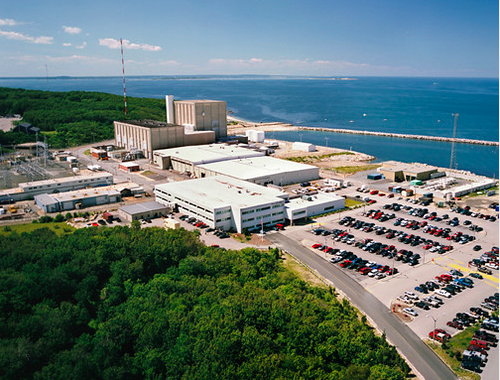Massachusetts Leads Power-Plant Emission Reductions in U.S.

Laura Rosbrow-Telem
BOSTON — The Regional Greenhouse Gas Initiative has lowered power-plant emissions dramatically in the Northeast, and Massachusetts can take a lot of credit for it.
RGGI sets a carbon cap, and has helped reduce power-plant emissions by close to 50% over a decade in nine Northeastern states, according to the most recent Acadia Center report. This represents 90% more reductions than the rest of the country.
Jordan Stutt, carbon programs director at Acadia, shared which states made the most progress, noting that they reduced emissions by more than 70% in the last 10 years..
“We’ve seen really dramatic emission reductions from the power sector in Massachusetts, in Maine, in Vermont, in New Hampshire,” he said.
RGGI works by capping carbon emissions from the energy sector. Power plants must buy allowances through quarterly auctions if they pollute beyond the cap. The money then supports energy-efficiency improvements, in which Massachusetts has invested a lot.
Stutt said that’s only part of the story, citing several factors that explain the New England states ranking so highly in reducing power-plant emissions.
“Large, polluting power plants have been closed down,” he said, “and the increased deployment of renewable energy, whether that’s new offshore wind developments, solar — both residential and grid-scale — are starting to make a dent in that electric-sector emissions portfolio.”
Massachusetts stopped generating electricity from coal during this period. Now, natural gas and renewable sources provide electricity in the state.
Other RGGI states include Delaware, Maryland, New York, Rhode Island and Vermont. New Jersey also is rejoining RGGI, and Pennsylvania and Virginia are joining soon.
The report is online at acadiacenter.org, and Massachusetts information is at eia.gov.
